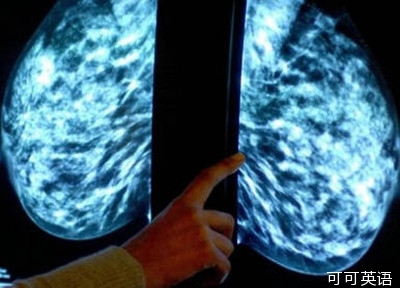(单词翻译:单击)
At first glance, astronomers and cancer researchers may not seem to have a lot in common.
乍一看,天文学家和癌症研究者似乎没有什么共同点。
After all, astronomers spend their time gazing at distant stars and galaxies, while oncologists fight tumors.
毕竟,天文学家致力于观察遥远的星体和星系,而肿瘤学家则治疗肿瘤。
But at the University of Cambridge in the UK, astronomers and cancer researchers have joined forces.
但是,在英国的剑桥大学,天文学家和癌症研究者已经开始合作了。
Specifically, astronomers there repurposed image analysis algorithms they use to spot distant galaxies to help oncologists diagnose aggressive tumors.
具体来说,天文学家改进了过去曾用于观测遥远星系的影像分析法,来帮助肿瘤学家诊断恶性肿瘤。
Here is how it works
如何实现
Astronomers use the algorithms to analyze faint, indistinct images captured by large telescopes.
天文学家用这种影像分析方法分析由大型望远镜捕捉到的微弱,模糊的星体图像。
Powerful computers help identify these images as galaxies, stars, planets, and other celestial bodies.
强大的计算机可以帮助辨认这些图像是星系,恒星,行星还是其它天体。

When cancer researchers study tumors, they stain samples to pick out subtle differences that clue them in to what types of proteins a given tumor harbors.
当癌症研究者研究肿瘤时,对样本染色,进而辨别出微小的差异,染色可以显示出肿瘤样本的蛋白质类型。
Identifying the proteins helps researchers know if a tumor is especially aggressive.
鉴别蛋白质可以帮助研究人员确定肿瘤是否是恶性的。
This process typically involves individual scientists peering at tumor samples under microscopes, which is time consuming and laborious.
这一过程通常需要专业的科学家在显微镜下观察肿瘤样本,既费时又费力。
But using reconfigured image analysis algorithms to identify tumor proteins can speed the process up significantly.
但是使用改良后的图像分析方法鉴别肿瘤蛋白质,速度就显著加快了。
To test the process, the researchers used the adapted algorithms on samples from more than 2,000 breast cancer patients.
为了测试这种方法,研究人员对2000多名乳腺癌患者的样本使用改良后的算法分析。
They found that computer analysis was just as accurate at detecting specific proteins as scientists peering through microscopes.
他们发现,电脑分析和科学家通过显微镜的观察在鉴别特定蛋白质时同样精确。
And the computer was much faster.
而且计算机的速度更快。
The researchers plan to further refine the computerized method by testing it on samples from more than 20,000 breast cancer patients.
研究人员计划通过测试20000多名乳腺癌患者样本,进一步改进计算机算法。


